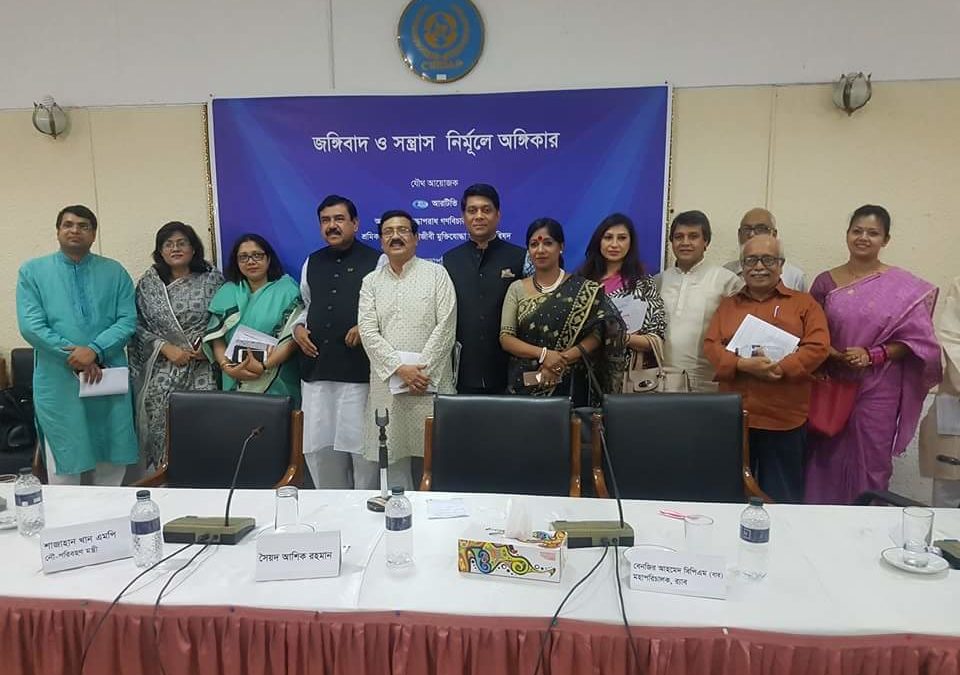Over the last decade, we see terrorist activities on the rise worldwide, To prevent and tackle violent radicalisation and extremism has thus become more important than ever for every country . Since early 2000s there has been significant investments in policies, programs and interventions aimed at tackling these issues.
Radicalisation is a phased process in which an individual or a group embraces a radical ideology that can lead to an increased willingness to condone or use violence for political goals. In recent years there have seen a shift, in focus away from more traditional security measures to more holistic approaches which seek to build resilience to violent extremist ideologies at the individual and community level, and to address what we understand to be the root causes of violent radicalisation.
In August 17, 2005 ,Bangladesh faced the first terrorist attack when synchronized bomb blasted by the banned outfit Jama’atul Mujahideen (JMB) in 63 districts rocked the whole country , waking the nation up to the menace of rampant radicalization.
However, the pressing need to counter radicalization re-entered the limelight in the wake of the Holey Artisan attack in July 2016, when five youths stormed a café at the heart of the diplomatic zone, murdered 20 hostages and 2 police officers. This event forced domestic and international policymakers to reconsider the extent to which jihadist militancy had taken root in Bangladesh. Jihadist militancy, suggests that the appeal of jihadism has spread and that jihadists may be able to tap a new constituency from which to recruit, even if thus far only in small numbers.

Following the attack – the worst in Bangladesh’s history – the government earned praise at home and from abroad for its strong efforts to wipe out homegrown militancy. According to Police Headquarters, as of October 2017 a total of 920 cases had been filed and 3,676 people arrested in connection with militancy, while over 500 suspected militants have been released on bail.
Though Prime minister Sheikh Hasina Immediately declared a “zero tolerance” policy for dealing with militants and terrorism, youth in Bangladesh are still, a key target group for radicalization and recruitment by violent extremist groups, which includes youth from all socioeconomic backgrounds. The country’s large proportion of youth in the population, youth unemployment and high levels of internet and social media use by them facilitates radicalization and recruitment Therefore there is an urgent need to show them the right path. We need to start developing channels of communication with the general populace which has always been a significant factor in curbing terrorism. Some of those channels have already been developed but those need to be enhanced so that there is enough inflow of information from the general public to identify and combat these factors.

Developing social resilience is absolutely critical and we must harness that ability of our society to fight the menace of terrorism. This is not just a security problem—it is a national problem, a societal problem, a problem which needs to be countered for the sake of the future of Bangladesh. At the era of rising extremism, our challenge is to maintain cohesive and inclusive safe society for all. Deradicalisation and awareness programs by Khaled Mosharraf Trust aims at educating and counseling the youth and strives to combat radicalisiation.





Recent Comments